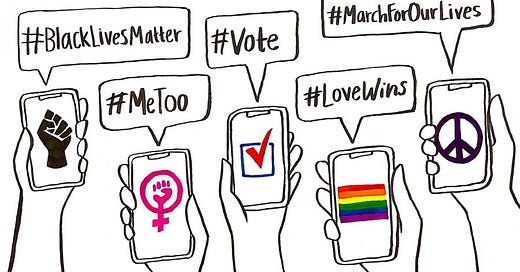Teaching Jean Twenge's "iGen"--Chapter 9
In this chapter, Jean Twenge tackles how iGen feels about some hot-button socio-political themes. From race and sexuality to trans issues and free speech debates, iGen has unique views from other generations. They seem to be engaged, often getting involved in activism, but they also don’t take initiative in directly helping others. They claim to believe in tolerance, but they also will cancel those who might say or do something they don’t agree with. Like so many aspects of this book, iGen is something of a contradiction that can be hard to figure out. The chapter also briefly explores what is going on in college, where the place where the most difficult ideas should be openly discussed continues, instead, to be a place where difficult ideas are too uncomfortable, offensive, or even violent to be listened to. Most of iGen is now old enough to vote, so keep Twenge’s discoveries in this chapter in mind come election time.
Priming:
Why do you think there has been such a surge in homosexuality and transgenderism in the last few years?
Racial identity/interaction seems to be a major concern among young people in a way that it wasn’t (generally) during the Gen-X years. What do you think happened?
Why do you think iGen is so sensitive? Is this a good thing? If not, how can this be resolved?
Writing structure:
You may encounter teachers who demand that all academic or professional writing be done in third-person point of view. There is some validity to this, as it keeps focus on the topic at hand rather than on the author (first-person) or the reader (second-person). It also allows for some measure of generalizing, which is important as most research is not about singular people, but large groups. But Twenge uses first-person throughout her book; it’s not obtrusive, mind you, but it is noticeable. As you move away from the classroom and read more professional texts, you will see that



